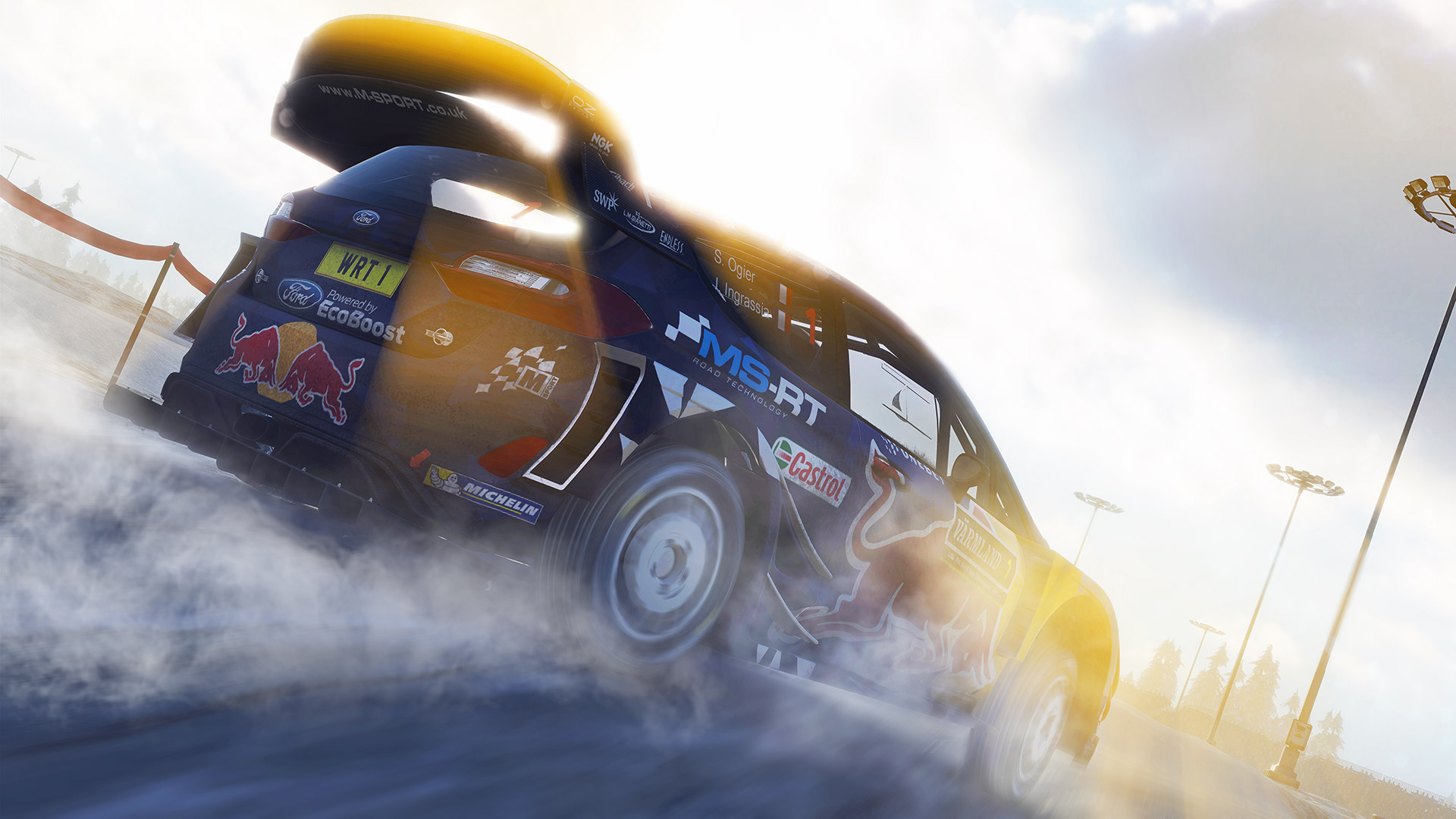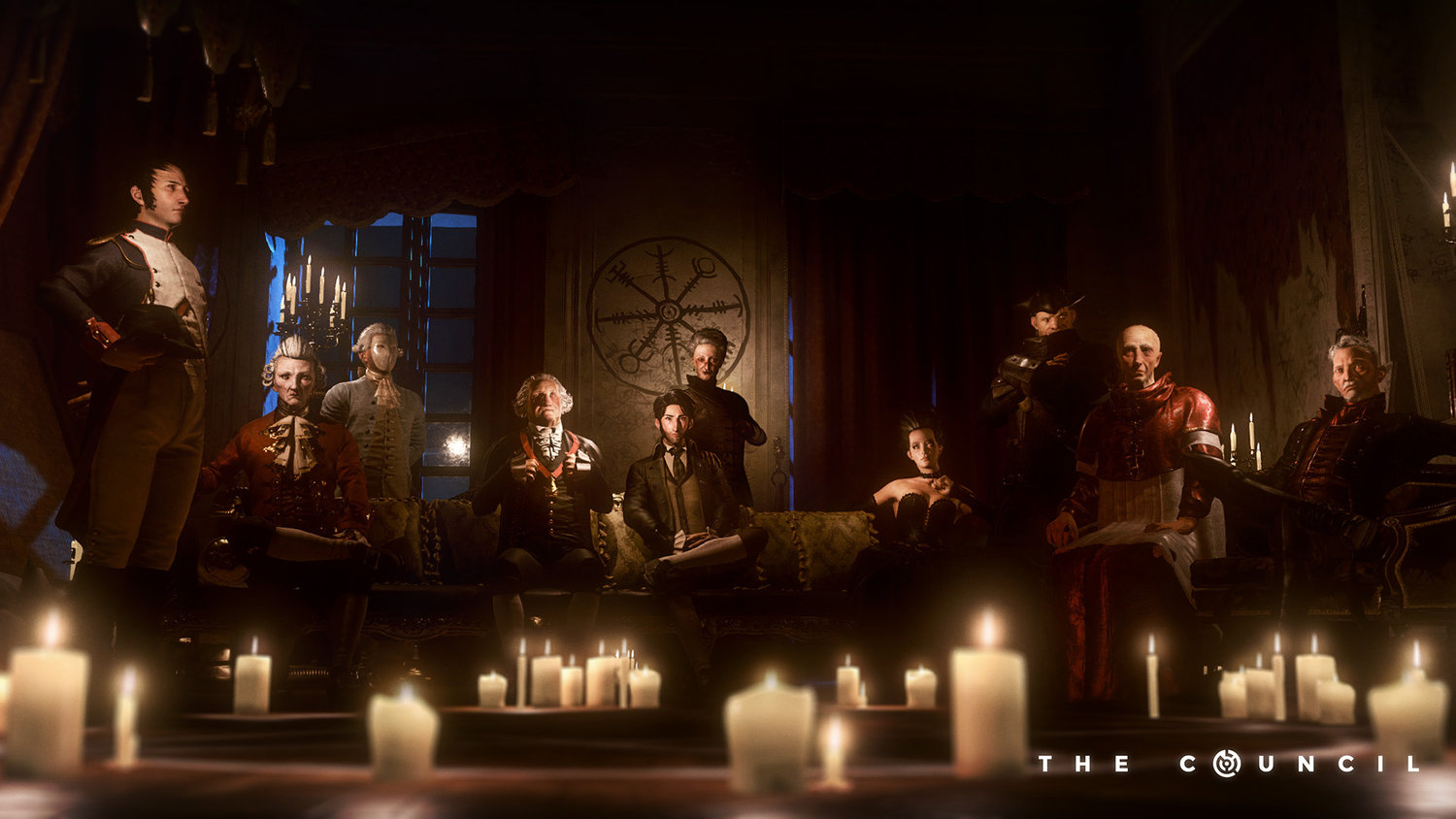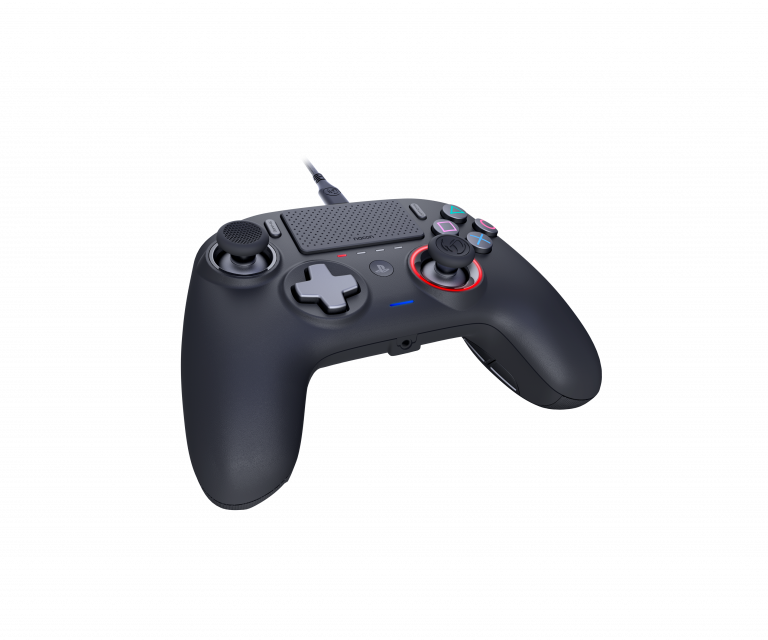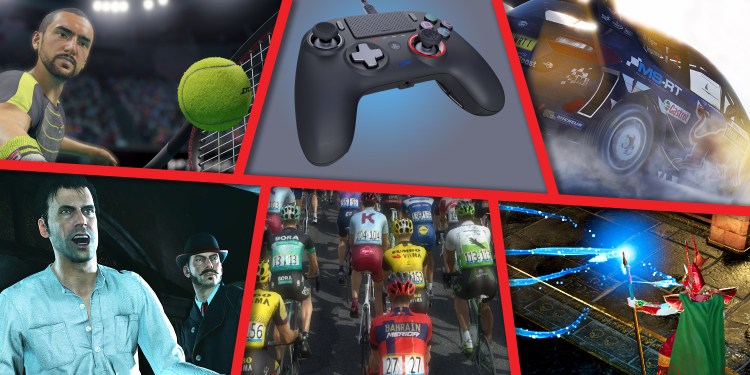On January 30, the Bigben Group announced its plan to put all its gaming activities under the Nacon banner and take the subsidiary public. Nacon was an already established brand in gaming, known for its peripherals such as the Revolution line of controllers.
Bigben’s strategy behind this move is to make it a leader in the double-A gaming. These tend to be games with smaller budgets that are targeting specific market niches. They also include games that major publishers of triple-A games such as Activision, Electronic Arts, and Ubisoft don’t produce because they don’t have that mass-market reach.
I spoke with Benoit Clerc, who’s now Nacon’s head of publishing after working in a similar role on the Bigben Interactive side since 2012. He’s been with Bigben for nearly 17 years, so he’s witnessed the company’s growth, from publishing games such as Space Invaders: Invasion Day in 2003 to the acquisition of studios such as Eko, Kylotonn, and Spiders over the past couple of years.
In our interview, we discussed why Bigben is doing this now, why it’s bringing Nacon public, some ideas it has for the funds raised through an IPO, the peripheral game, and what the double-A segment is all about.
June 5th: The AI Audit in NYC
Join us next week in NYC to engage with top executive leaders, delving into strategies for auditing AI models to ensure fairness, optimal performance, and ethical compliance across diverse organizations. Secure your attendance for this exclusive invite-only event.
This is an edited transcript of our interview.
GamesBeat: Why go public now with Bigben/Nacon? Why is the timing good for this?
Benoit Clerc: This is a conjunction of several parameters. First, an internal one: We as a company, as a publishing business unit, and an accessory business unit — I’ll elaborate on that part later on — but Nacon is gathering those two activities for reasons that I will explain. We have the workforce, the knowledge, the position, the studios now, everything we need, the muscles, if I may say so, and the brain also, to fuel an ambition that we’ve voiced publicly, which is to become one of the leading midsize publishers in our industry in the three-to-five years to come.
And the other reason, maybe, to mention the most important ones, is external. We think that with the next generation of consoles that’s ready to come out, with the cloud, which is also the next big step technologically and industrially and business-wise for our industry, and the digitalization, which I’m not teaching you anything — that we’re leading as an industry now, this was the right time for us also to go bigger, in order to occupy a position at this critical moment in our market history.
GamesBeat: The acquisitions you made in 2018 and 2019, was that the ramp leading to this?
Clerc: We bought five companies. But they represent eight studios. One of the companies, RaceWard in Italy, we have a stake in the company that we could raise in the months and years to come to have a majority. All of the studios have an identity and some specificities when it comes to the games that they’re able and willing to develop. Those are eight teams with some passion and some expertise in some fields.
I’ll give you the company names and studios they have. The first company is KT Racing, Kylotonn. They’re based in Paris and Lyon. They’re specialized in racing. They’re doing off-road racing with WRC (World Championship Rally), and they’re doing two-wheel racing with Isle of Man TT. They’re currently working on our biggest project by far, which is the next Test Drive Unlimited game.

Above: Big Bad Wolf is working on a Vampire: The Masquerade narrative RPG.
Then we have Cyanide. This is three studios: one in Paris, one in Bordeaux, Big Bad Wolf, which is specializing in role-playing narrative titles. They did The Council, and they’re working on Vampire the Masquerade, a new game that will unfold another chapter in that world to create this very specific new genre that they call the narrative RPG. And Rock Factory in Montreal, so three studios. They’re doing action and turn-based titles. Then we have Spiders in Paris. Then we have Eko in Paris. Spiders, RPG and action games, Eko, sports games and top-down action-RPG games. They developed Warhammer Chaosbane for us, a Diablo-like, and they also did How to Survive for another publisher.
The last studio I mentioned is RaceWard, in Milan. RaceWard is not owned by us. We have a minority stake, which is roughly 40 percent or something. We have four companies that 100 percent belong to BigBen, development companies, and they represent seven studios, and then one studio, RaceWard, which we have strong links there. They’re working exclusively for us.
GamesBeat: All those companies and studios, they’ll be moving under the Nacon brand, and that’s the part that’s going to be now the next move, making all that public?
Clerc: Absolutely. Bigben as a company is public already. We’re listed on the stock exchange in Paris. That was in 1999, quite a long time ago. It was necessary, in order to achieve the ambition that I mentioned earlier, to regroup the energy of the pure gaming people inside the group in one single body. This is the case with Nacon, which will be a 100 percent subsidiary of Bigben. We’ll stay inside of the Bigben group, but part of the shares of Bigben in Nacon will go public on the stock exchange in the weeks to come, in order for us to raise money to accelerate toward our ambitions.
GamesBeat: When you’re talking to the game industry, do people recognize the name Nacon more than the name Bigben?
Clerc: For me, it would be difficult to say, working for Bigben for 17 years. I’m still picking up the phone and answering as Bigben Benoit. But this name was conveying an identity that the was the original business of the group, founded in 1981 by its current CEO, when we were selling watches and clocks. The name Bigben wasn’t conveying something related to gaming. Nacon, which we created five or six years ago to create a premium brand of accessories, among which now the flagship is the Revolution controller for PS4 — we’re among the few third-party accessories manufacturers with an official seal of approval from Sony, an official license.
The Revolution controller is one of the best, if not the best, pro esports premium names in the world. It’s not me saying that. It’s the press saying that. This controller is among the best in the world. We wanted to leverage the identity of this brand to say, now, as a new gaming specialist company, Nacon will position itself as an expert, specialist, premium, high level, high quality group. That’s what we want to do. What has been conveyed by the Nacon Revolution controller, to make a device that’s high end, fully dedicated to specialist pro gamers, that’s what we want to do for other accessories in the future, and for our games. We want to address the specialists. We want to talk to fans of racing, fans of RPGs, and so on.
GB: You’re talking about hitting the passionate fan, the engaged fan. That’s the role of the double-A studio these days, isn’t it? Going after people who really like a certain type of game, and not targeting the broader market.
Clerc: You’re completely right. This is the same analysis we’ve made on our own. We think that there are many places in the market, many niches, although I don’t very much like that word, because it conveys the idea that you’re talking to a tiny portion: a small chunk of gamers, which is not always the case. Sometimes you’re talking to a lot of people. But there are indeed several segments of gamers that are very passionate about one or two genres or game mechanics or simulations or themes or whatever in our industry. They have a level of expectation that’s extremely high, as any passionate specialist of anything. Sometimes they represent not enough people in order to be interested for the big ones, for the majors of our industry.

Above: WRC 8 is Kylotonn’s most recent off-road racing game based on the World Rally Championship series.
We think that as a company, we have now the workforce, the talent, the expertise, along with our studios, our developers, to please exactly those people, branch to branch. Kylotonn, off-road racing — there are in the world several million gamers who have a level of skill when it comes to video game racing that is so high, with a knowledge of the racing genre that is so good, to be entertained and challenged properly they need a simulation that is a hardcore simulation. Off-road racing is extremely difficult to handle. You need to race the car at night, in the rain, in the mud. The next turn is on gravel. You don’t know the circuits, because there is no circuit. You need to listen carefully to your co-driver. This is hardcore. It takes time to produce a simulation that’s at the proper level to satisfy those people. That’s what we did with Kylotonn, KT Racing.
We also want to please the RPG specialists. With Big Bad Wolf and Cyanide and Spiders, we have several teams of passionate developers that are ultra-fans of RPGs. They’ve produced dedicated tools. They know how to tell stories, how to make RPG mechanics that are different from what the big ones are doing. They’re talking to hardcore specialists of action and RPG games. We have sport developers making rugby, cycling, handball games. Once again for hardcore specialists of those specific genres. We know them very well. We want those studios with specialized developers to do the same genre over and over, the genre that they like, in order to satisfy more and more, better and better, each time the audience that they’re talking to.
GamesBeat: Is there any temptation here to get into triple-A games, or is Nacon really going to zero in on the double-A space?
Clerc: I’m not comfortable with this segmentation, triple-A and double-A. As a professional I have no problem. I know what it means. I can talk about it. But most of the time, triple-A is a three-star Michelin restaurant and double-A is a two-star Michelin restaurant. Three stars is always better than two stars, you know what I mean? Which is not really the meaning of triple-A and double-A. There are many companies, many publishers, many studios, that say, I’m doing triple-A, but that’s not because you’re saying you’re spending more than X tens of millions of dollars on a game in order to talk to more than X millions of people in the world that are playing triple-A. That’s what it is to do triple-A. To do triple-A is to make a blockbuster when you’re in Hollywood. I’m Ubisoft, I’m Warner, I’m EA, I’m Activision, and then I’m publishing triple-A games, investing more than $40 million, $50 million, $60 million in a production, or even much more than that. I’m talking to a mass audience. Of course those games are excellent most of the time, but they’re meant to please a wide audience, a very large audience.
Making double-A is not making a game that’s of less quality than triple-A. It’s making a game that’s talking to a lesser number of people. That’s what we’re doing. There are many genre audiences that the big names in our industry are not interested in anymore, because they’re not numerous enough. EA 10 years ago was publishing rugby games. This is no longer the audience that they’re talking to in the future. I love rugby and rugby fans. I’m often seeing on social networks, people saying, yeah, I’d like EA to publish a new rugby game, but they won’t. This is no longer their position in the market. But companies like BigBen, with numerous iterations — with Rugby 20, the game that we just released, we’re about to achieve what we did with WRC, which is to make a real good rugby simulation that will talk specifically to rugby fans. This is what we want to do in each and every segment: to identify a place in the market where there are enough people, passionate people, in which we have the expertise, we have the developers who share that same passion, and they will specialize themselves to be experts in these genres for years to come.

Above: The Council is Big Bad Wolf’s episodic mystery game with RPG elements.
GamesBeat: With the money you raise from an IPO, are you looking at more acquisitions, or are you looking to solidify Nacon with more resources?
Clerc: We’re going to do three things with this money. We’re going to be stronger in the peripherals part of our business. To develop takes time and money, to develop more accessories of the same quality as the Revolution controller. We’re going to develop more games with bigger budgets in order to have bigger and better games more quickly. And we’ll seize opportunities when we find them for other studio acquisitions.
GamesBeat: Are you still looking to put out 12 to 15 games a year, as you said previously?
Clerc: Yes, that’s the average number of games we want in our portfolio per year.
GamesBeat: Do you want at least half to be developed internally still, or are you looking to develop more outside Nacon?
Clerc: We want to have more developed internally, because this is the guarantee, to rephrase what I’ve said before — when we know a studio that belongs to the company is hiring people that are just racing specialists or just RPG specialists, that they’re designing tools that are fully dedicated to one genre only, that they’re doing the same thing for years over and over with the same passion, then we can guarantee the level of quality of our games in the end. This is better for us and better for our audience, for the public.
GamesBeat: Is there any concern that you’re going to have one big portion of the company still involved with manufacturing physical goods, and another that’s focused on digital and selling digitally?
Clerc: No. The way the products are sold is not our main synergy consideration. The main point of gathering those two entities is we’ll strengthen the game culture inside of the company, which is extremely important. We do share the same — I would have said expertise, but that’s quite arrogant. I’m not pretending I’m any sort of expert. I do my best to be passionate and to think about my job very seriously, but both on the accessories and peripheral part and on the publishing part, we do share the same passion and interest for gamers. My colleagues from the peripheral side and ourselves on the publishing side, we have one point of interest, which is: What is the game experience that we’re delivering? We’re most of the time delivering a game experience through peripherals, whether it’s a mouse or a keyboard or a gamepad. It enhances both the game culture inside of the Nacon company and the level of expertise that we have when it comes to the quite famous user experience in gaming.
GamesBeat: When it comes to Nacon’s peripheral business, does it have anywhere that’s considered a great strength, whether it’s controllers or keyboards?
Clerc: It’s gamepads. We’re mostly known for having one of the best, if not the best, console gamepads for PS4. It’s a PC controller as well.
GamesBeat: Are you planning on taking that idea with the Revolution and making it for other consoles?
Clerc: Sure. Just like for our games, we’re platform-agnostic. We’ll produce peripherals and games for any device in the future. Any support where our business model and our customers will have the proper level of experience, we’re fine to do so. That’s true also for the accessories.

Above: The Revolution is Nacon’s successful esports-grade controller.
GamesBeat: Where is Nacon’s best market? Is it Europe, or Asia, or the Americas?
Clerc: It depends on if you’re talking about peripherals or games, and with games it’s different. There are games that are extremely popular in Europe, and other games that are more popular in the U.S.. It’s a case by case scenario. We want to be a global company.
GamesBeat: Would you also be interested in opening a Nacon game development studio, that just makes games, not peripherals, but uses the Nacon studio name?
Clerc: Why not? In the future, the criteria — a studio with our brand — whatever the name of the studio, if they’re called Cyanide or KT or Eko or Bigben, what are they good at doing? What do they want to do? We’ll not ask a KT racing developer that’s working for that studio for years, because he or she is a fan of cars and racing, to work on an RPG. That’s not what they want. When you’re a developer, you’re first and foremost a creative person. You want to get up every morning to live a passion for something that’s moving you. You’re putting your gut on the table when you create something, whether it’s a book or a game. You need to be passionate about what you’re doing. The name is not the most important thing.
GamesBeat: Your game portfolio seems like it’s fantastically set up for services like Xbox Game Pass. Do you find that a lot of players are trying your games on Game Pass?
Clerc: Yes, we’re quite happy with the system of Game Pass. Sometimes we have very nice surprises regarding the number of players that are discovering our games thanks to Game Pass.
GamesBeat: Do you think it’s a good way for more mass market gamers to discover who you are?
Clerc: Sure. I think that when there’s an offer like this one, to allow players to pay a few dollars a month to regularly discover new titles, it’s a way for them to discover genres, IP, franchises, game mechanics that they wouldn’t discover on their own. So this is good.
GamesBeat: Do you have any concerns about the lukewarm reception that Stadia has received so far?
Clerc: This is just the beginning of something. I won’t blame anybody. I won’t make any quick conclusions. I won’t say any bad words. This is something that’s technically extremely difficult to produce. This is business-wise extremely difficult. It’s a new way to play games. It will take time. For sure it will take time.
We all know that with 5G, with the big bandwidth, this will be a way of playing for sure in the years to come. All the big names in the entertainment industry and the game industry are dipping their toes in this water, because they know that there is a new way of gaming there. This will not be for this year, and certainly not for next year, and maybe not even the year after that. But it will come.
GamesBeat: Do you expect to support PS4 and Xbox One for a few more years?
Clerc: Yeah, sure. This is impossible to say today, for how long. It depends on the time that those consoles will stay live. No one is able to read the crystal ball today. But for as long as possible, as long as there will be gamers on those machines, we’ll keep on proposing our games.

Above: Services like Xbox Game Pass are a plus for publishers such as Nacon.
GamesBeat: Can services like PlayStation Now and Game Pass extend the life of the older consoles?
Clerc: Good question. I don’t know, honestly speaking. When there is something which is shaking an industry so strongly — I don’t like the word “revolution,” because that’s been overused. Each time you’re producing something that’s quite different, the word “revolution” is brought on the table. But the cloud gaming, you change the way the games are distributed. You change the way they’re played. The purpose is to be able to play anywhere, if you have a fancy controller. If you want to have a good experience on your mobile, on a tablet, this is device agnostic. It will change the way the games are monetized. That’s a lot of changes. How long it will take, when it will work properly, who will be the biggest players in that field, how it will change the way developers, publishers will develop and publish games specifically to address the new usages, how the consumer will react to the new models and those new ways of gaming, that’s a lot of parameters.
Of course many smart brains in our industry are thinking hard in order to evaluate and analyze, and there are many tests currently being done. But saying that this will go this way, it will do that, this is the way it will be in two years from now, I won’t risk myself on any projection. As a content provider, a game publisher, whatever the network, whatever the device, it will remain games that will be played with a peripheral on a screen. That’s the definition of video gaming. For us, we’ll adapt ourselves. We’re content specialists, and in our industry content is games. We try to be games and gamers specialists, with our peripherals and our publishing activity. That’s what we’ll keep on doing with the new distribution methods.
GamesBeat: I enjoy Spiders RPGs. The Switch is a fantastic platform for RPGs. Will Spiders be porting anything to Switch in the near future?
Clerc: We’re thinking about it. Spiders is working on a homebrewed engine, as we say, the Silk engine. There’s also a technological part in this discussion. I’m a big fan of the Switch. I’m playing a lot on this machine. There are indeed avid RPG gamers on the Switch. So stay tuned. Maybe we’ll have a surprise.
GamesBeat: Could the resources you raise from going public help with porting jobs, not just for Spiders games, but for any games at your studios?
Clerc: We won’t buy a studio that will be a porting house. What we want to buy are studios that are experts and passionate developers that are specialists in a genre that we’re interested in for the future.
Correction, 7:40 a.m. Monday, March 2: Nacon’s head of publishing is Benoit Clerc, not Beniot Clerc. I apologize for the error.


